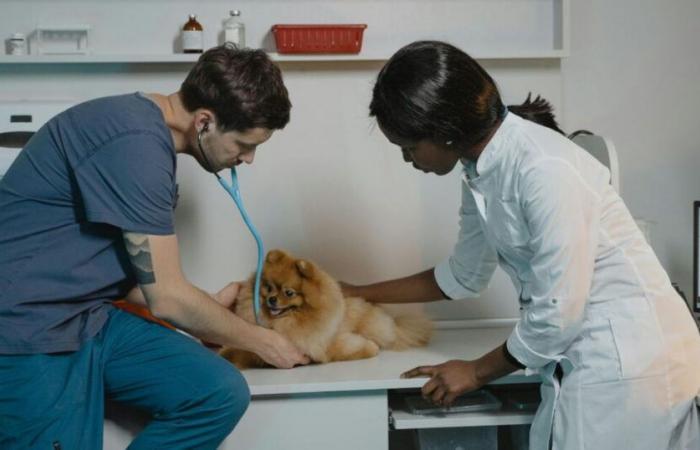The data is scant, lament the researchers. Here is what we know about the positive and negative effects of sterilization on the health of dogs and bitches.
The sterilization of dogs is not not obligatory in France for individuals with the exception of category 1 dogs. However, 64% of French people say they are in favor of compulsory sterilization of pets. But if this act presents advantages particularly in terms of the dog's health, it is suspected of having also consequences.
What is sterilization? Definition
As defined by the Prefecture of Yonne, “sterilization consists of suppression of the reproductive function of the animal, it can be permanent (surgical) or temporary (for example, by placement of implants), and concerns both males and females”.
What are the advantages?
It has several advantages, including on the welfare of the animal and its behavior by reducing, for example, the aggressiveness of males and running away in the event of heat, the document presents. In terms of health, the medical procedure allows, among other things, to reduce the appearance of tumors mammary and uterine tumors in females, as well as the development of testicular and prostate tumors in males.
What are the disadvantages of sterilization?
But to these benefits can be added disadvantages. Recently, researchers wanted to gather all the scientific data that existed regarding the risks of sterilization on dog health. Their research published in Plos One focused on females and targeted 5 health problems, including whether a time, before or after puberty, was preferable. The authors found that scientific information on this subject was weakwhile it is very important for veterinarians as well as dog owners.
“Conflicting information in the veterinary literature regarding the beneficial and harmful effects of sterilization at different times makes decisions about the best time to sterilize female dogs difficult for pet dog owners, and it is difficult for veterinarians to provide advice to the owners”shared Rachel Moxon, principal investigator of the project.
As the scientist explains as well as veterinary sites, some studies suggest that early sterilization of female dogs can protect against certain cancers, more increase the risk of developing othersas well as urinary incontinence et an orthopedic disease of development.
According to the New Vet clinic, other risks exist: hypothyroidism in dogs sterilized early, vaccine intolerance in certain breeds, a spatial location problemespecially among women, and finally a potentially increased risk of fearful or aggressive behavior in sterilized large breed female dogs.
Sterilization can also lead to weight gain in animals. It is recommended to change your diet, but be careful with kibble “for sterilized animals” which has a health claim, warns a veterinarian site. Dietary adaptation is a process that must be put in place with the healthcare professional.
How much does it cost to sterilize a dog?
The cost of sterilizing a dog in France varies depending on several factorsnotably the sex, size of the animal, geographic region and chosen veterinary clinic. First of all, you should know that the price will be higher for a female since the procedure is more complex.
According to the SPA, the price of sterilization of the female dog varies on average between 263 to 308 euroscompared to between 167 and 199 euros for a male.
It is recommended to request a quote detailed to your veterinarian to find out the exact cost of the operation for your animal.
Please note that some animal health insurance plans offer packages that partially or completely cover sterilization costs. There are also animal protection associations or university veterinary clinics which can display reduced rates for these interventions. It may be useful to inquire with these organizations to benefit from financial assistance.
Sources :
You may also be interested in:
How long does it take for a cat to recover from sterilization?
Male dog or female dog: how to choose?
What is the maximum amount of time a dog can spend alone?
My dog refuses to go out: what should I do?






